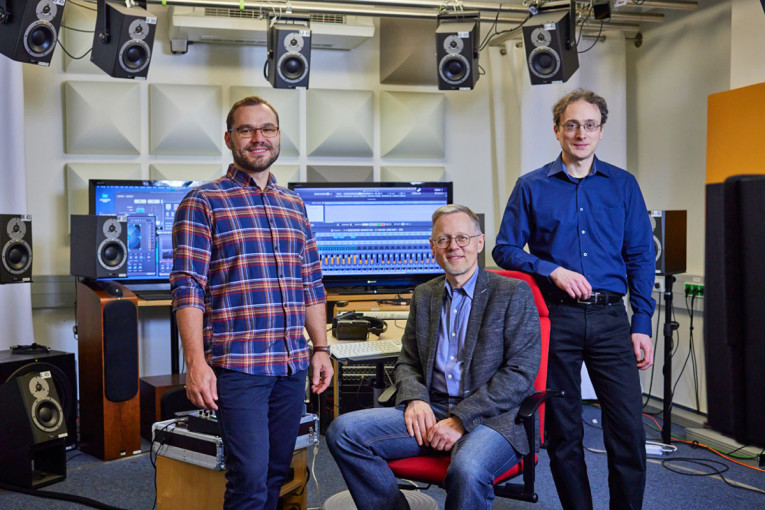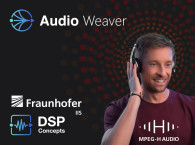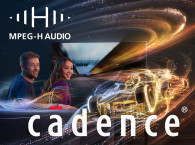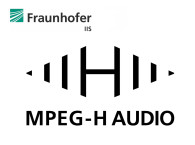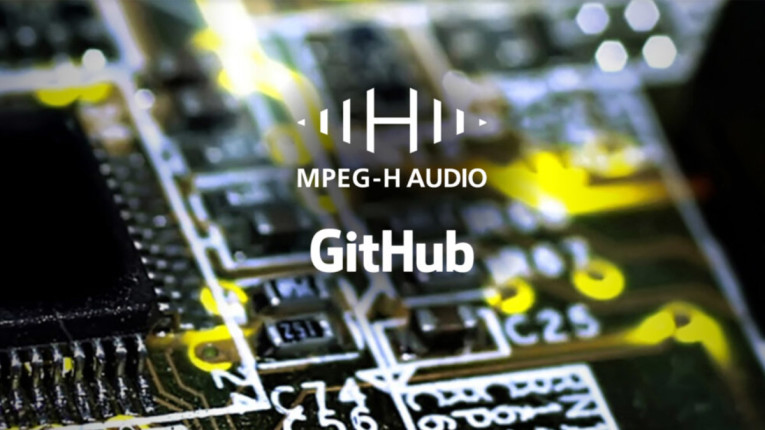
"The demand for devices and software products that can play back advanced audio formats is on the rise. Consumers have come to expect immersive sound and content creators want to provide personalized experiences that meet the accessibility requirements and personal preferences of their audiences. MPEG-H Audio is the only mature technology that can deliver on these demands while being transparent and flexible enough to adapt to most integration requirements," says the Fraunhofer IIS announcement.
To make it easier for all developers to include MPEG-H Audio playback into their applications, the German research institute has now released their decoder software implementation on GitHub. The Fraunhofer FDK MPEG-H Software can be used for a range of operating systems, such as Windows, MacOS, Linux, iOS, and Android. In addition to the decoder source code, the release comprises the MPEG-H Audio User Interface (UI) manager for easy access to the personalization options of MPEG-H Audio and packager software to enable HDMI passthrough of MPEG-H Audio bitstreams to external devices such as AVRs and soundbars.
The MPEG-H Audio GitHub repositories also include example programs and wiki pages with helpful technical documentation. This facilitates the development of solutions for personalized and immersive sound for software players and client devices.
The Fraunhofer FDK MPEG-H Software is available under the FDK license, a license that is also used for the highly successful Fraunhofer FDK AAC for the AAC Audio Codec range, which has enabled xHE-AAC in billions of devices.
"We are excited to see the ideas and products creative developers will come up with. This GitHub release facilitates the access to the best MPEG-H Audio decoder implementation on the market," says Harald Fuchs, Head of the Media Systems and Applications Department at Fraunhofer IIS.
The MPEG-H Audio decoder software is available here:
https://github.com/Fraunhofer-IIS/mpeghdec
MPEG-H Audio UI manager
https://github.com/Fraunhofer-IIS/mpeghdec
IEC61937-13 Packager software
https://github.com/Fraunhofer-IIS/iec61937-13
MMTISOBMFF is an ISOBMFF/MP4 reference implementation containing MPEG-H Audio encapsulation
https://github.com/Fraunhofer-IIS/mmtisobmff
ILO is a collection of helpful data types and algorithms for MPEG-H related software
https://github.com/Fraunhofer-IIS/ilo
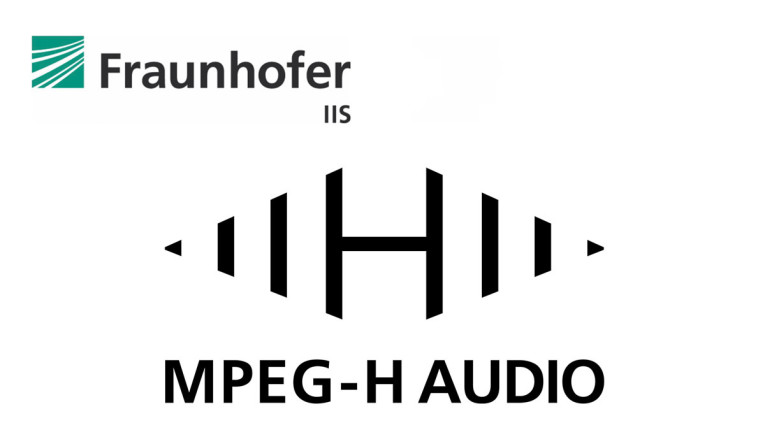
MPEG-H Authoring Suite (MAS)
The release of the MPEG-H Audio decoder software is described by the Institute as "the next step in the evolution of the MPEG-H Audio system," But another important part of it is the MPEG-H Authoring Suite (MAS), a set of free-of-charge tools for fast and easy content creation – content which can then be played back by software players and client devices enhanced by the Fraunhofer FDK MPEG-H Software.
Going beyond what's available in terms of advanced formats, the MPEG-H Audio system excels through its unique personalization features, including the creation of fully adjustable dialogue levels, customizable audio description, multiple languages, and even interactive object positioning. As a result, users can tailor their own experience to individual preferences and requirements. MPEG-H Audio delivers these unprecedented customization options, as well as enveloping immersive sound, on every kind of playback device – from home theaters to 3D soundbars to mobile devices.
The MPEG-H Authoring Suite (MAS) 5.0 is the latest version of the toolset that paves the way for easier and faster production of MPEG-H Masters. It now covers the complete production, delivery, and playback chain of the MPEG-H Audio system and features an updated version of the MPEG-H Info Tool, the MPEG-H Encoding and Muxing Tool, and the brand-new MPEG-H VVPlayer. MAS software be downloaded now, and comprehensive information, tutorials, and demo content is available on mpegh.com
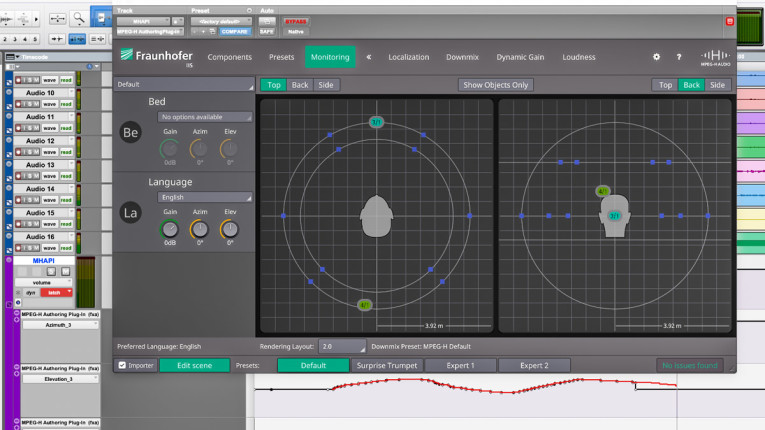
MPEG-H Audio Receives Joseph von Fraunhofer Prize 2023
The process used MPEG-H Audio clearly distinguishes the technology from Fraunhofer IIS from other 3D sound systems: Instead of using only classic audio tracks, the format works with audio objects, which are assigned properties such as position and volume through metadata. All this information is sent to the playback system, where it is combined with information about the playback environment. The resulting signals are only created at the loudspeaker — in contrast to usual surround formats such as 5.1 or 7.1.
The new approach of describing audio objects through metadata also enables content to be personalized: choosing between different languages, making movie dialogues louder and thus more understandable, positioning the voice of the sports commentator freely in the room, and hearing more or less audience sound at live events.
Three researchers from the Fraunhofer Institute for Integrated Circuits IIS — representing a large team — have been awarded the Joseph von Fraunhofer Prize 2023 for the development of the MPEG-H Audio System. The prize is awarded to employees of the Fraunhofer-Gesellschaft for their outstanding scientific achievements in solving application-related problems. For the development of the system, Harald Fuchs, Dr. Achim Kuntz and Adrian Murtaza — representing the team — will be awarded the Joseph von Fraunhofer Prize 2023.
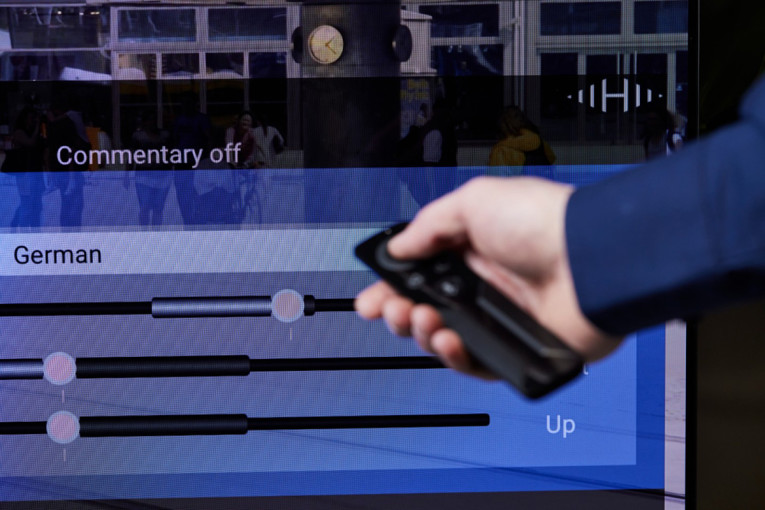
The Fraunhofer IIS team has developed a complete system that covers the entire chain from sound production to transmission and playback. "We want to make sure that every production, transmission, and playback situation is covered by MPEG-H Audio," Kuntz explains. "The MPEG-H Audio system therefore goes far beyond a mere audio codec: It includes production tools, file and transmission formats, and innovative playback methods as well as software solutions for integrators."
Another example of one of the many developments around MPEG-H Audio is the immersive object-based music format 360 Reality Audio from the electronics company Sony. It can already be found on many streaming services — an album produced with this technology even won the Grammy for Best Immersive Album in 2023.
Developing such a comprehensive audio system is only possible with a large team: At peak times, up to a hundred people were working simultaneously on the project, which started back in 2012 — currently there are still around 50 employees. In addition, international support was important. Industry and technology partners around the world helped make MPEG-H Audio fit for use in a wide variety of environments. Brazil, for example: After large-scale comparative tests, the country decided in December 2021 to use the new technology as the mandatory audio standard for its new TV infrastructure. MPEG-H Audio has also been tested a number of times in Europe.
www.iis.fraunhofer.de
